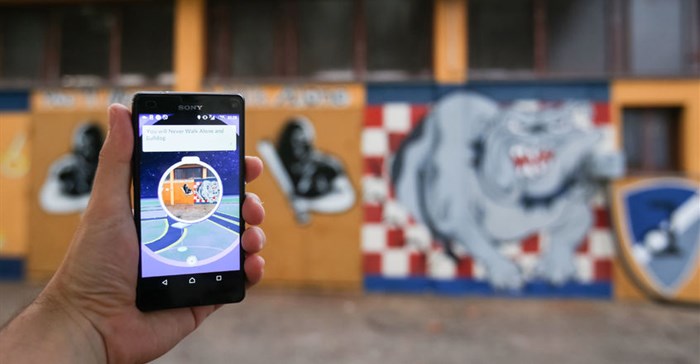
Top stories





Energy & MiningGlencore's Astron Energy gears up with new tanker amidst Sars dispute
Wendell Roelf 16 hours

More news


















Logistics & Transport
Uganda plans new rail link to Tanzania for mineral export boost









Niantic founder and chief executive John Hanke has told a story of naming the company after a whaling ship abandoned in San Francisco Harbor by crew members who rushed off to seek fortunes during the famed Gold Rush. The ship was run aground and converted into a store. The notion of such long-forgotten wrecks prompted Hanke six years ago to use the name Niantic to christen a quest to combine gaming, mobile mapping and augmented reality to playfully reveal virtual things hidden in the real world.
Niantic was a side-project for Hanke at Google, which had bought the entrepreneur's startup Keyhole in 2004 and turned it into the free mapping service Google Earth. Hanke spent years as a top executive in a Google "geo" division producing widely used services such as Maps and Street View. The gamer wanted to go beyond helping people navigate and have fun with the ability for mobile devices to detect people's locations. The entrepreneur toyed with the idea of launching a new startup, but instead kept Niantic anchored in the Silicon Valley technology powerhouse.
"Staying at Google gave us the advantage of being able to tap into the data we have at (mapping division) Geo and the infrastructure of Google," Hanke was quoted as saying in a 2012 Inc. magazine article.
The Niantic project fielded its first offering in 2011 in the form of a mobile application called Fieldtrip that served up information about where smartphone users were or nearby places of interest. The following year, Niantic launched a game called 'Ingress', seen as a predecessor to 'Pokémon Go'. Ingress, which has been downloaded more than 15 million times, also uses real world surroundings as the game board.
Instead of trying to catch cartoon monsters such as iconic Pikachu by targeting them with 'Pokeballs', Ingress players battle for control of virtual portals. Early Ingress fans submitted pictures of places as possible portals complete with satellite position metadata, essentially crowdsourcing a rich geo-location database that was put to use in Pokemon Go.
When Google underwent a corporate restructuring last year to divvy its endeavors into arms of a freshly-created parent company called Alphabet, Niantic went independent. Google did invest in Niantic, as did Nintendo and The Pokémon Company.
Niantic claims from 50 to 100 employees. The private company does not make its financial information public but some analysts value it at more that $3 billion. To justify such a valuation, Niantic will have to prove that Pokémon Go is lasting and profitable, not just another passing fling for notoriously fickle mobile game players.
Pokémon Go has shown it can make money. Industry tracker Sensor Tower estimated that Pokémon Go generated more than $200 million in revenue during the month after its release in early July. The game is free, but players can buy virtual supplies such as PokeBalls and lures to attract Pokémon. Cafes, pubs, restaurants and other venues have taken to buying lures that tempt players to linger, and hopefully spend money, while waiting to catch Pokémon.
During a recent Venture Beat technology conference, Hanke said that the game was designed from the outset for in-app purchases, and that revenue could also be made from sponsorships along the lines of what was done in Ingress. Ingress has portals hosted in commercial spots such as shopping centers, and Pokémon Go launched in Japan with fast food giant McDonald's sponsoring in-game locations.
"We are talking to a bunch of other businesses that want to take advantage of that model for Pokémon Go in other parts of the world," Hanke said at the conference. It's promising."
A strong selling point for Pokemon Go sponsorships is that they get people swarming to places in a way that typical advertising does not. The power of Pokémon Go has, to some, become a bane. Parks and other public venues ripe with PokeStops or 'gyms' where cartoon creatures battle are at times overrun with players.
Authorities have taken to warning Pokémon Go players against venturing where it is dangerous, illegal, in poor taste, or they are simply not wanted. The game and its creator are already in the sites of lawyers intent on suing to hold them accountable for trespassing or injuries involving players. The Washington-based Electronic Privacy Information Center has called for US regulators to investigate whether Niantic is collecting too much information about players and their whereabouts.
Source: AFP

For more than two decades, I-Net Bridge has been one of South Africa’s preferred electronic providers of innovative solutions, data of the highest calibre, reliable platforms and excellent supporting systems. Our products include workstations, web applications and data feeds packaged with in-depth news and powerful analytical tools empowering clients to make meaningful decisions.
We pride ourselves on our wide variety of in-house skills, encompassing multiple platforms and applications. These skills enable us to not only function as a first class facility, but also design, implement and support all our client needs at a level that confirms I-Net Bridge a leader in its field.
Go to: http://www.inet.co.za